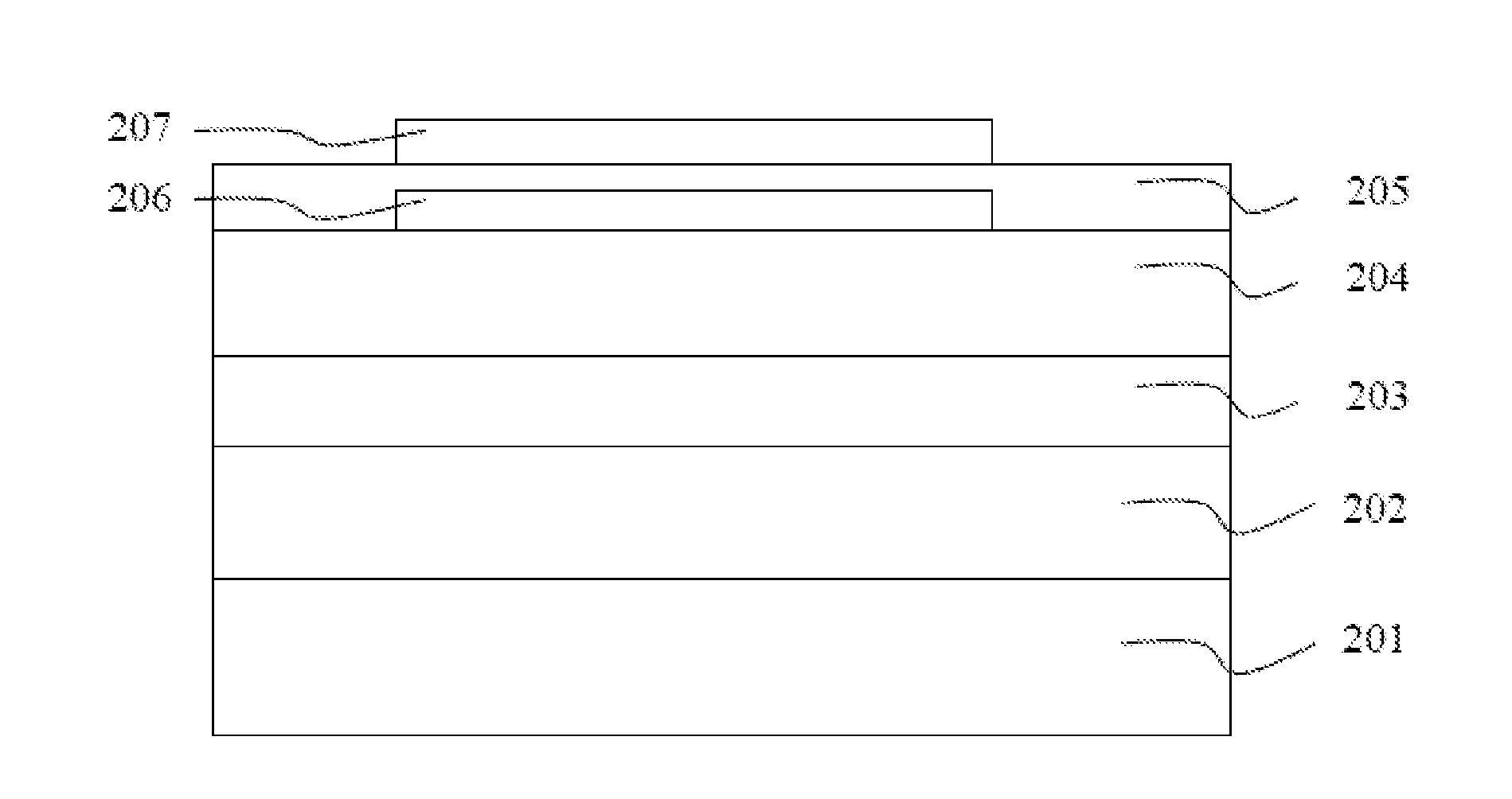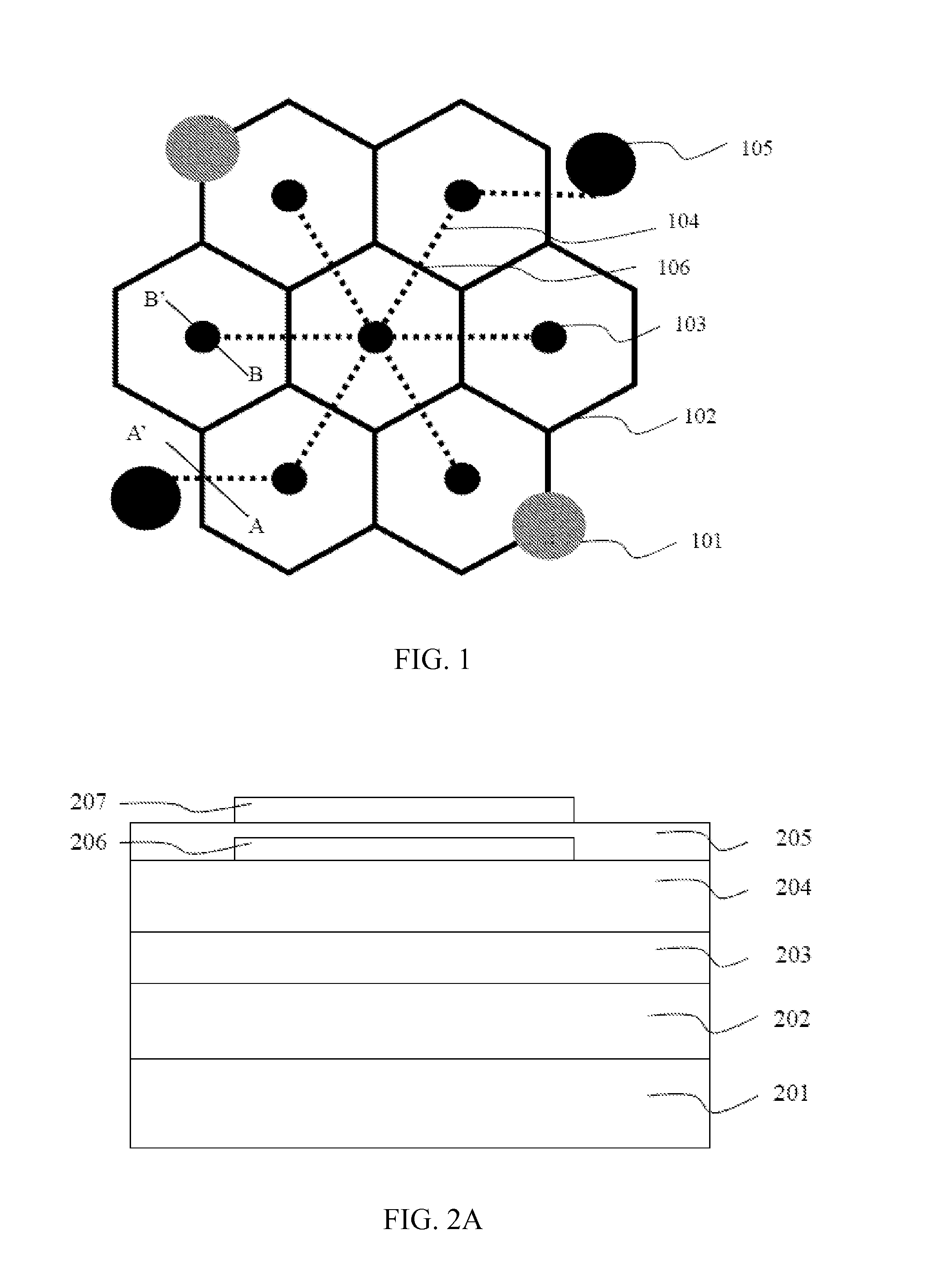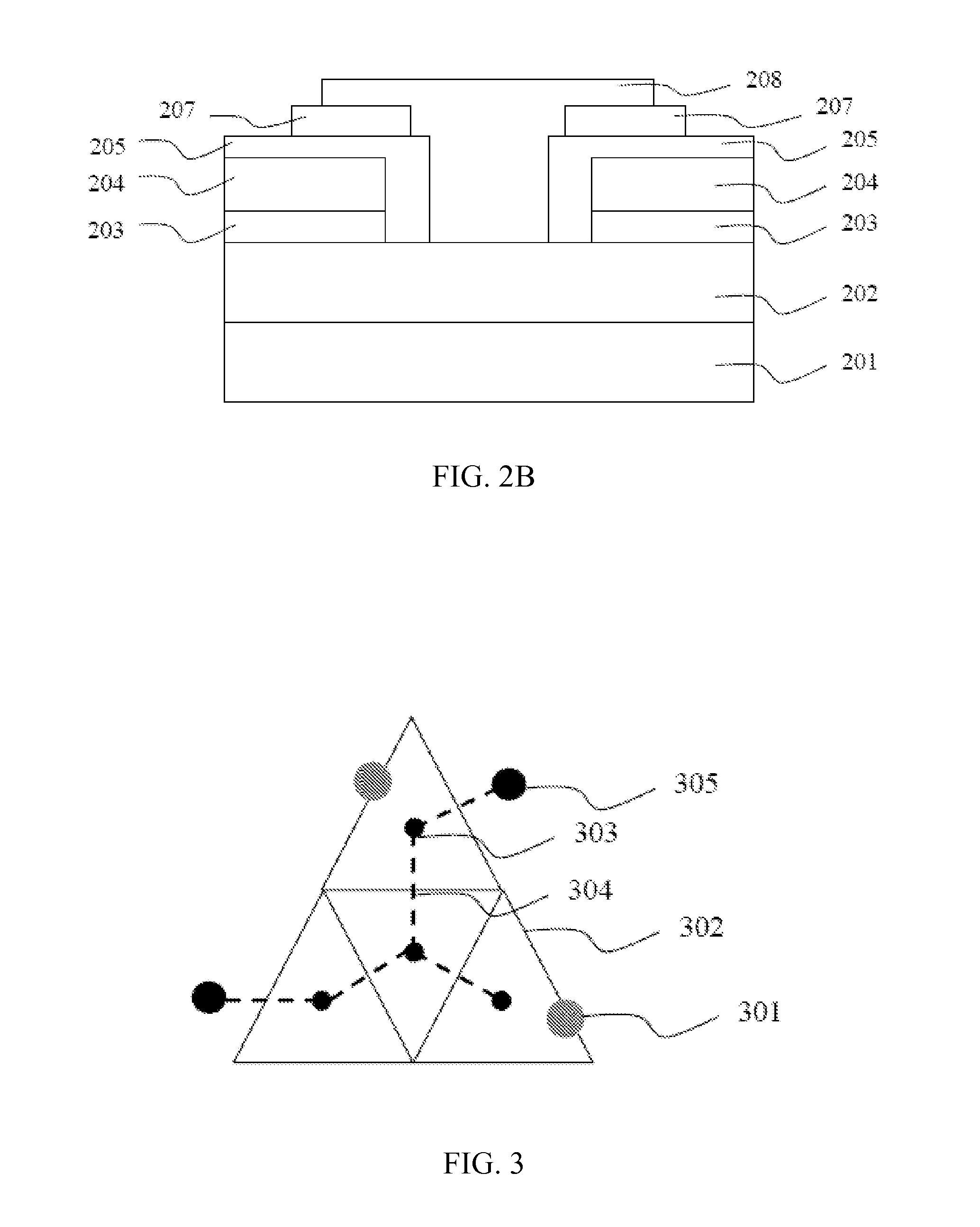Optoelectronic semiconductor device
a semiconductor device and optoelectronic technology, applied in semiconductor devices, semiconductor/solid-state device details, electrical apparatus, etc., can solve the problems of affecting the production process, so as to achieve stable manufacturing process and low cost
- Summary
- Abstract
- Description
- Claims
- Application Information
AI Technical Summary
Benefits of technology
Problems solved by technology
Method used
Image
Examples
first embodiment
[0021]FIG. 1 shows a top view of the electrode structure of the optoelectronic semiconductor device in accordance with the present application. The device includes at least a p-type bonding pad 101, a plurality of p-type extension electrodes 102, a plurality of n-type contact zones 103, a plurality of n-type extension electrodes 104 and at least an n-type bonding pad 105. The p-type extension electrodes 102 form a plurality of symmetrical closed patterns, and at least a p-type bonding pad 101 is formed on the p-type extension electrodes 102. The n-type contact zone 103 is disposed in the symmetrical closed pattern mentioned above and electrically connected to the plurality of n-type extension electrodes 104. Besides, the p-type extension electrodes 102 and the n-type extension electrodes 104 are electrically connected to the p-type bonding pad 101 and the n-type bonding pad 105 respectively. In this embodiment, the p-type extension electrodes 102 and the n-type extension electrodes ...
fourth embodiment
[0033]FIG. 5 and FIG. 6 illustrate another layout of the electrode structure of the optoelectronic semiconductor device of the present application. FIG. 5 illustrates a top view of the layout of the electrode structure of the optoelectronic semiconductor device in accordance with the present application. The device shown in the drawing including at least one p-type bonding pad 501, a plurality of p-type extension electrodes 502, a plurality of n-type extension electrodes 503, at least an n-type bonding pad 504 and a plurality of insulating layers 505.
[0034]The p-type extension electrode 502 includes a plurality of perpendicular p-type extension electrodes 5021 and a plurality of lateral p-type extension electrodes 5022 to form a plurality of symmetrical closed patterns. A plurality of straight n-type extension electrodes 5031 and a plurality of lateral n-type extension electrodes 5032 are formed at the p-type extension electrodes 502 wherein part of the perpendicular p-type extensio...
fifth embodiment
[0038]FIG. 6 illustrates a top view of the layout of the electrode structure of the optoelectronic semiconductor device in accordance with the present application. The embodiment includes at least one p-type bonding pad 601, a plurality of p-type extension electrodes 602, a plurality of n-type extension electrodes 603, at least one n-type bonding pad 604 and at least one lateral insulating layer 605.
[0039]The p-type extension electrode 602 forms a plurality of symmetrical closed patterns including a plurality of perpendicular p-type extension electrodes 6021 and a plurality of lateral p-type extension electrodes 6022. A plurality of perpendicular n-type extension electrodes 6031 and a plurality of lateral n-type extension electrodes 6032 are formed at the p-type extension electrode 602 wherein a portion of the perpendicular p-type extension electrode 6021 and the lateral n-type extension electrode 6032 form the three-dimensional crossover. At least one p-type bonding pad 601 is form...
PUM
 Login to View More
Login to View More Abstract
Description
Claims
Application Information
 Login to View More
Login to View More - R&D
- Intellectual Property
- Life Sciences
- Materials
- Tech Scout
- Unparalleled Data Quality
- Higher Quality Content
- 60% Fewer Hallucinations
Browse by: Latest US Patents, China's latest patents, Technical Efficacy Thesaurus, Application Domain, Technology Topic, Popular Technical Reports.
© 2025 PatSnap. All rights reserved.Legal|Privacy policy|Modern Slavery Act Transparency Statement|Sitemap|About US| Contact US: help@patsnap.com



